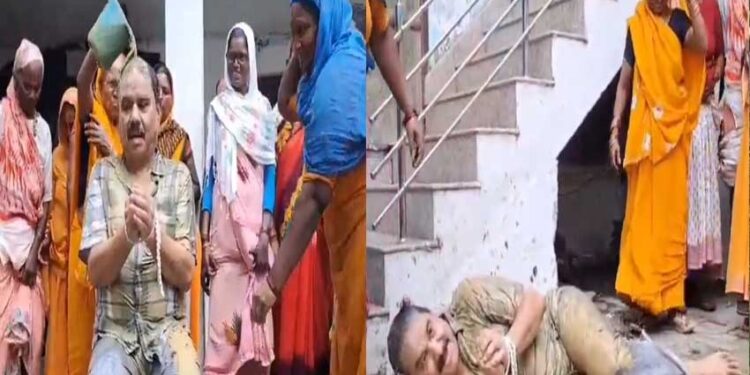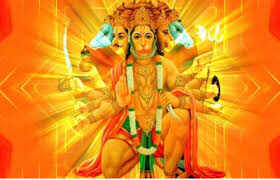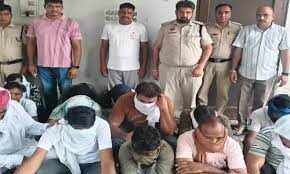History News Desk !!! Hamidullah Khan (English: Hamidullah Khan, born- 9 September, 1894; died- 4 February, 1960) was the last Nawab of Bhopal State in India. He was very educated and an efficient administrator of the state. Nawab Sultan Jahan Begum had announced in her lifetime that Hamidullah Khan would be made the ruler of the state on 16 May 1926. Hamidullah Khan became the ruler of Bhopal State on 9 June 1926. On becoming the ruler, he appointed different ministers for all departments.
Introduction
The last Nawab of Bhopal State, Hamidullah Khan was born on 9 September, 1894. Before this, all the Begums always gave birth to girls. Sultan Jahan Begum loved Hamidullah more from the very beginning and used to involve him in the state affairs. Sultan Jahan made Hamidullah Khan the Chief Secretary of the state on 16 April, 1916. Both his elder brothers started claiming the succession of the state. Nawab Sultan Jahan Begum announced in her lifetime that Hamidullah Khan would be made the ruler of the state on 16 May, 1926 and he became the ruler on 9 June, 1926.
Marriage
Nawab Hamidullah Khan’s first marriage took place at the age of just 11 years on 6 December 1905 in Peshawar with Maimuna Sultan, daughter of Prince Humayun, from whom he had 3 daughters. Abida Sultan who married Nawab Qurabai, Sajida Sultan who married Nawab Iftekhar Ali Khan Pataudi and Rabia Sultan who was first married to Nawab’s nephew Rashiduzzafar Khan but the marriage did not succeed, then to Aga Nadir Mirza. Nawab Hamidullah Khan married for the second time in Bhopal in 1947, from which he had no children.
Skillful ruler
Hamidullah Khan was a very educated and excellent ruler. As a ruler, he appointed separate ministers for all departments. He established the electricity department in Bhopal in 1931, a match factory in 1934, a textile mill in 1937 and a sugar factory in Sehore. Electric water supply pumps were installed at Karbala and Yacht Club. He built a cardboard factory, ground truck telephone station and an airport in Bairagarh. Nawab Bhopal built Rahat Manzil, Chiklod Kothi and Sufia Mosque in Ahmedabad. Nawab Saheb was also the Vice Chancellor of Aligarh Muslim University from 1930 to 1947. Hamidullah Khan had relations with famous people of that time like Mahatma Gandhi, Mohammad Ali Jinnah, Sarojini Naidu, Jawaharlal Nehru, Dr. Ansari etc.
Nawab Hamidullah Khan became the Chancellor of the Committee of Rulers of Indian Princely States, which was called the Chamber of Princes, and in this capacity he participated in the Round Table Conference held in London in 1930 and the Second Round Table Conference in 1931. In 1947, the Nawab formed a nominated cabinet, in which Raja Avadh Narayan Bisaria was made the Prime Minister, K.F. Haider was made the Finance Minister, Muzaffar Ali Khan was made the Food Minister, Saeed Ullah Khan Razmi was made the Health and Education Minister and Bhairon Prasad was made the Public Works Minister. After the formation of this cabinet, in March 1948, Nawab Hamidullah Khan announced a waiver of land tax with a view to giving Bhopal the status of a separate princely state, which was strongly opposed and a new cabinet was formed.
Desire to join Pakistan
Hamidullah Khan became Chancellor of the Chamber of Princes twice in 1931 and 1944 and was the Chancellor at the time of partition of India. He resigned from the post of Chancellor in 1947 as soon as the draft of independence was announced. After independence, the Nawab had made full preparations to go to Pakistan. Before going there, he sent his treasury from here to Pakistan. During this time, the Nawab was in touch with Mohammad Ali Jinnah. Hamidullah Khan did not want to merge his state with India under any circumstances. He refused to sign the unification agreement. Being very close to Jinnah, the founder of Pakistan, he was getting help in pressurizing the Indian government.[2]
Meanwhile, Nawab Hamidullah, who was preparing to go to Pakistan, sent Bhopal Bank and the treasury of the state to Pakistan. After sending the treasury, the Nawab asked his daughter Abida Sultan to become the ruler of Bhopal state. The daughter refused after understanding the whole situation. When he understood that Bhopal cannot be included in Pakistan and the state will be merged in India even without his consent, he went for Haj. He thought that some new way would emerge by the time he returned.
Merger of the princely state into India
The bank of Bhopal State whose treasury was sent to Pakistan by Nawab Hamidullah had crores of rupees deposited by the people of Bhopal. Later this bank was declared bankrupt. On 11 September 1948, the founder of Pakistan, Mohammad Ali Jinnah died. The political situation in Pakistan changed rapidly. The Nawab had received a strict warning from Sardar Patel. Finally, with a heavy heart, the Nawab merged Bhopal State with India on 1 June 1949.










